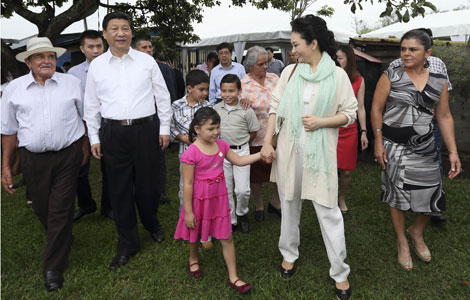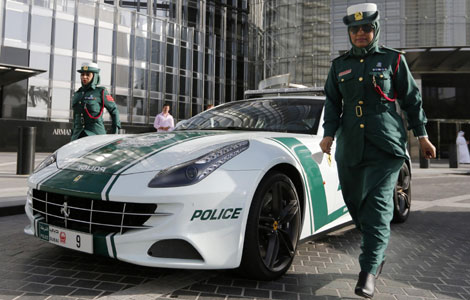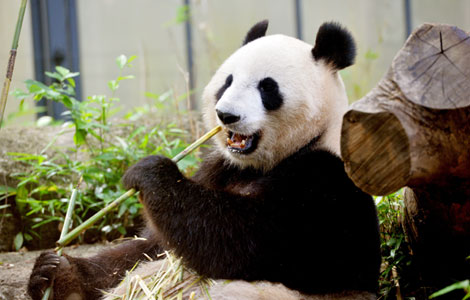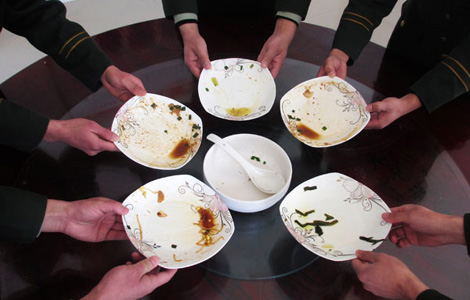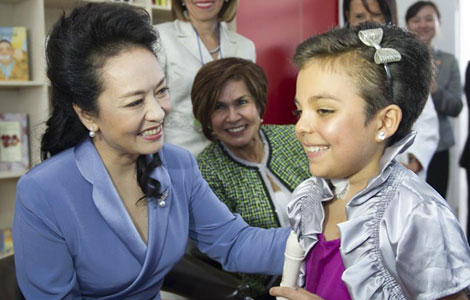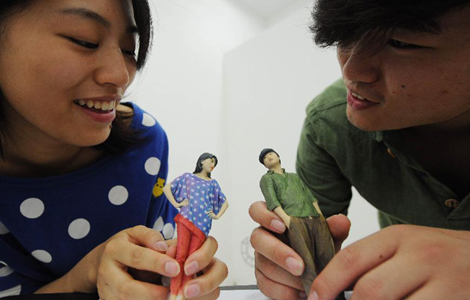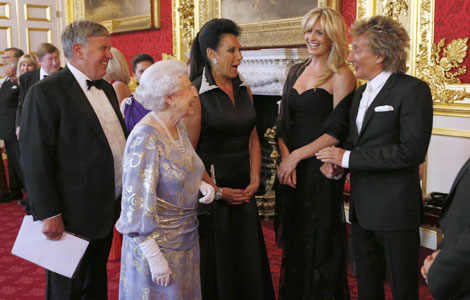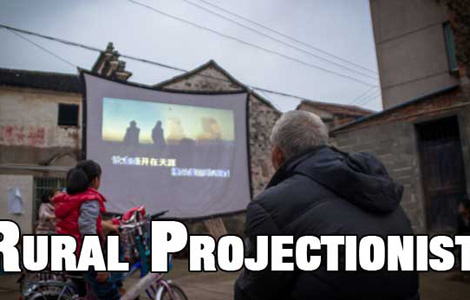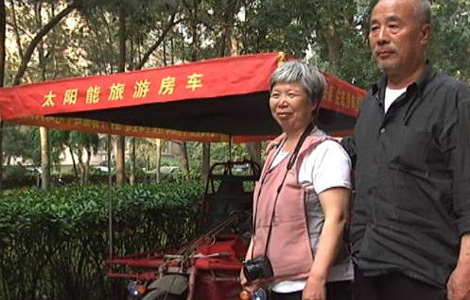From bombs to unsafe food, fear permeates daily life
Updated: 2013-04-24 11:52
By Chen Weihua (China Daily)
|
||||||||
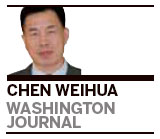
Everyday fears of people in China and the United States are starkly different, as a recent incident illustrates.
At Washington's Ronald Reagan National Airport, a Chinese passenger going through security was told by a Transportation Security Administration officer that his backpack was found to contain a bottle of liquid.
Another TSA officer carefully held the backpack in his gloved hands and carried it to a table. From inside he pulled out a small bottle of spring water. Before opening it, he asked the passenger: "Sir, would you tell me that this bottle does not contain anything that will cause harm to me?"
The passenger looked puzzled. "Of course not," he said. "It's just water I forgot to throw out."
Many Chinese travelers have said they find security screenings at US airports to be excessive, particularly the removal of shoes and belts.
On Monday the TSA decided to suspend, just days before it was to take effect, a policy change that would let passengers bring small knives onto airplanes. The decision, and the pressure that prompted it, reflects the fear among many Americans - in this case, airline crews - about the threat of terrorism in their daily lives.
Since the Sept 11, 2001, attacks, reminders of this fear can be seen during big events or in response to threats or actual terrorist violence in the news. They come in the form of heavily armed police officers, or even National Guard members, patrolling the New York City subway, accompanied by sniffer dogs.
The fears gained new force with last week's Boston Marathon bombings, which killed three people including Chinese graduate student Lu Lingzi and injured more than 260. Political leaders in the US, from President Barack Obama on down, have tried to temper fears by telling constituents that the best way to defeat terrorism is to go about their daily lives as usual.
To help shield the US from terrorist threats, the Department of Homeland Security was created in 2002 by subsuming 22 existing federal agencies, making it the third-largest cabinet department, dwarfed only by Defense and Veterans Affairs.
To most Americans, the question isn't whether another terrorist attack will occur on US soil, but when.
According to a survey by the Pew Research Center for the People & the Press, conducted April 18-21 and released on Tuesday, the Boston blasts appear to confirm Americans' long-held belief that occasional terrorist acts are to be expected.
The survey noted that over the past decade, majorities in polls have consistently said that occasional attacks on US soil will be "part of life" in the future. In the aftermath of the April 15 marathon bombing, 75 percent expressed that sentiment, compared to 64 percent a year ago, the Pew survey said.
The public is split over the US government can do more to prevent terrorist attacks, with 49 percent saying yes and 45 percent saying no. Among respondents, 60 percent believe steps taken by the government since 9/11 have made their country safer, while 35 percent say these measures have had little effect.
In China, the threat that looms over people comes in a very different form: food. Security of the food supply has become a major concern among Chinese in recent years due to numerous reports of contamination in drinking water, milk, pork, vegetables and other things people eat every day.
A survey issued in October by the Pew Center's Global Attitudes Project found food safety to be the fastest-growing concern among the Chinese public. In 2012, 41 percent considered it a "very big problem" in China, compared to just 12 percent who felt that way in 2008.
A scandal five years ago involving tainted milk and baby formula has left an indelible memory in China. Powdered formula adulterated with the industrial chemical melamine sickened at least 300,000 people and led to the death of several infants.
Scares about baby formula haven't gone away, a reality seen in the influx of mainland Chinese rushing to Hong Kong to snap up certain brands they believe to be safe. As a result, the administration in Hong Kong on March 1 began restricting exports of baby formula.
The controversial rule bars those without a license or exemption from taking more than 1.8 kilograms of powdered formula out of the special administrative region. The penalty is a fine of up to HK$500,000 (about $64,400) or two years in prison.
Many Chinese wonder what's safe to eat when they dine out, which is increasingly common as disposable incomes rise.
The consolidation last month of the China Food and Drug Administration from two existing government agencies, is intended to tighten supervision of food and medicine production. It faces no less a challenge in China than Homeland Security does in the US in countering citizens' daily fears.
Contact the writer at chenweihua@chinadailyusa.com
Most Viewed
Editor's Picks

|

|

|

|

|

|
Today's Top News
Relationship 'relaunched'
Good start expected for summit
Xi, Mexican president discuss bilateral co-op
Cooperation to drive mutual growth
Chinese president arrives in Mexico for state visit
China is victim of hacking attacks
US to be largest trade partner
China joins fight against hacking
US Weekly

|

|
